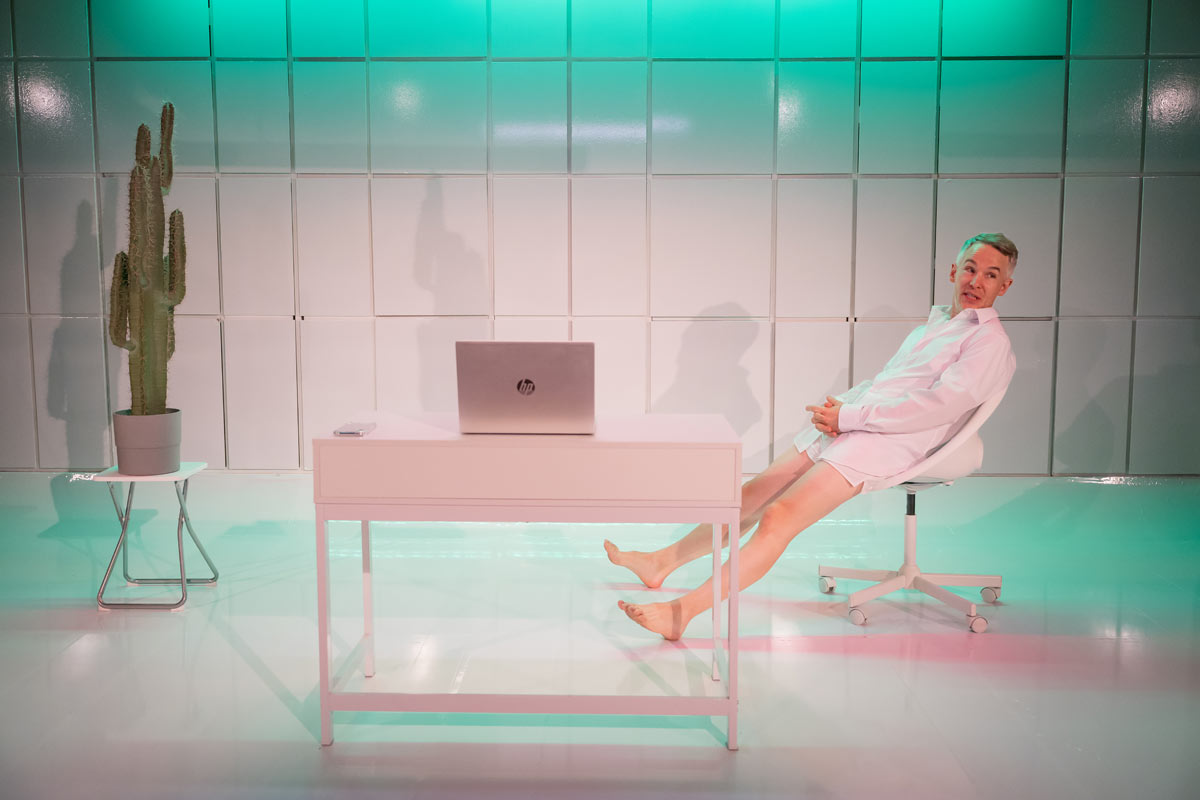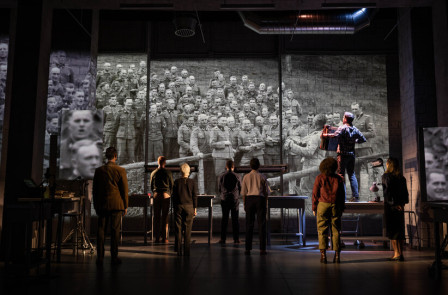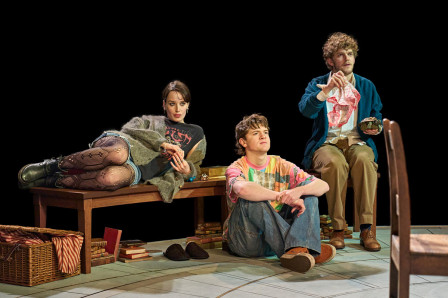Review: CLIVE at Arcola
It’s a brave man who attempts delivery of a one hour play where his only co-star is a large, inanimate, but dangerous looking cactus. Paul Keating has done just that, tackling the spiky subject of post-Covid isolation in Michael Wynne’s drama CLIVE which has just opened at the Arcola.
 Clive at Arcola Theatre. Photo by Ikin Yum.
Clive at Arcola Theatre. Photo by Ikin Yum.
Set almost entirely within the restrictive confines of home working, we first meet our lone IT helpdesk employee Thomas, fidgeting at his desk, cleaning it, adjusting the position of his phone and keyboard and waxing lyrically about the satisfaction and focus which a project or task brings to his life. There is an immediate sense that his well-ordered existence is dependent upon work and routine to function properly, as we gradually learn details of the organisation which employs him, some of its personnel and its recent internal machinations. Chief among these, are the surprise departure of a long-serving employee from the accounts team, who it appears has become the victim of an ambitious, overbearing and undermining colleague named Naomi. Promoted from Office Manager to COO, she has a taste for cost-cutting measures as voracious as her inclination to belittle and denigrate subordinates.
Our timid and eager-to-please protagonist lives for his job and since his former lover returned overseas, has largely succumbed to self-imposed isolation, with only his cactus Clive and the occasional online work call for companionship. He cuts a fundamentally tragic figure as he casts a periodic eye over the occupants of the apartment block on the opposite side of the canal. The grumpy woman always at her computer, a young pregnant couple, and a gay guy who has a steady stream of male visitors. As Naomi deploys a sequence of underhand manoeuvres to circumvent and discredit Thomas with the aid of the firm’s inept and unquestioning HR department, his suspension and removal seems inevitable.
All of these elements are realised effectively on a neat modern set by designer Mike Britton which deploys a backdrop wall of 14 x 5 cupboard compartments variously filled with cleaning products, delivered groceries and other paraphernalia. As Clive succumbs to patches of black and brown spots and has to undergo periodic amputations, the reduction in limbs and eventual death of the cactus acts as a metaphor for Thomas’s life and victimhood.
As directed by Lucy Bailey, the containment, powerlessness and inconsequence of one individual and his story, assumes a bitter poignancy. And whilst the play doesn’t explore the wider societal implications in any detail, there is sufficient inferred negativity in the ongoing move to home-working models, to raise obvious concerns for human interaction and mental wellbeing.
CLIVE continues at Arcola until 23rd August.
Latest News

 HERE THERE ARE BLUEBERRIES at Stratford East - First look images released
5 February 2026 at 15:35
HERE THERE ARE BLUEBERRIES at Stratford East - First look images released
5 February 2026 at 15:35

 UK premiere of STAGE KISS heading to London
5 February 2026 at 15:16
UK premiere of STAGE KISS heading to London
5 February 2026 at 15:16

 Review: ARCADIA at Old Vic
5 February 2026 at 11:33
Review: ARCADIA at Old Vic
5 February 2026 at 11:33

 Alex Kingston and Richard Schiff star in Michael Frayn's COPENHAGEN
5 February 2026 at 10:45
Alex Kingston and Richard Schiff star in Michael Frayn's COPENHAGEN
5 February 2026 at 10:45